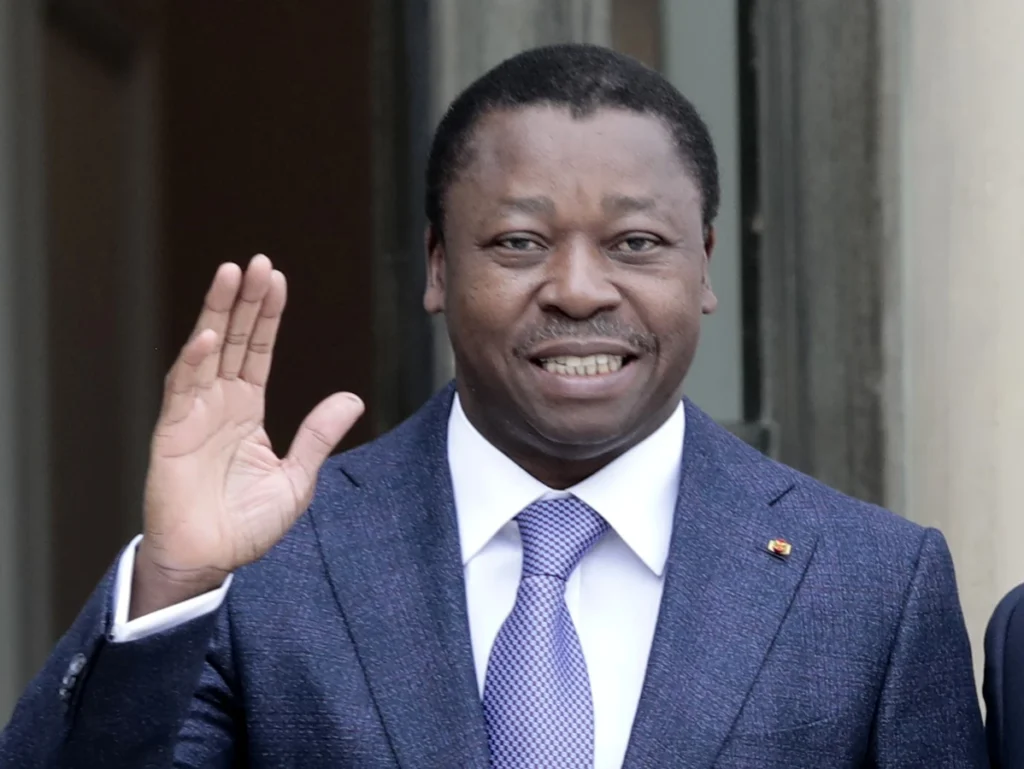
Faith Nyasuguta
Togo is once again at the center of West Africa’s term-limit crisis as thousands of angry citizens take to the streets, demanding the resignation of President Faure Gnassingbe – whose family has ruled the country for nearly six decades. The unrest comes in the wake of dramatic constitutional changes that many see as a backdoor strategy to keep Gnassingbe in power for life.
The spark for this crisis came in April 2024, when Togo’s parliament began debating sweeping constitutional reforms. Despite fierce objections from opposition leaders, the ruling party pushed the changes through. By May 2024, the new constitution was officially adopted, transforming Togo from a presidential to a parliamentary system.
Under this new setup, the once-powerful presidency is now mostly ceremonial. Real power sits with the newly created President of the Council of Ministers, a role with no term limits and broad executive authority. On May 3, 2025, Faure Gnassingbe was swiftly sworn in to this new position – cementing his hold on power just as his final presidential term would have ended under the old rules.
Gnassingbe has been president since 2005, when he succeeded his father, Gnassingbe Eyadema, who ruled Togo with an iron fist for 38 years. For many young Togolese, this dynastic control feels like a prison. “It’s the same family, the same tactics – just new titles,” said Bertin Bandiangou, a student activist who has since been arrested for organizing rallies.

Public anger erupted into massive street protests starting June 26, 2025. Under the banner of the “Hands Off My Constitution” movement, thousands of mostly young demonstrators blocked roads and burned tires in Lome and other cities. Their demands are clear: Faure Gnassingbe must resign, the constitution must be restored to guarantee genuine term limits, and all political prisoners – including artists and student leaders – must be freed.
Security forces responded swiftly and violently. Rights groups report that between June 26 and June 28, at least seven people died – some allegedly drowned while fleeing crackdowns, while others were found lifeless in lagoons. The government denies responsibility, blaming accidents and “unruly elements.”
Alongside physical force, the government has used censorship to try to break the protests. On June 16, Togo suspended French broadcasters RFI and France 24 for three months, accusing them of biased coverage. Journalists from other outlets have been detained and popular rapper Aamron was arrested in late May for songs criticizing the regime. His arrest has become a rallying cry for freedom of expression.
Internet shutdowns and social media blackouts added to the clampdown. From late June into early July, platforms like Facebook, WhatsApp, TikTok and YouTube were restricted, crippling protest coordination. Still, new demonstrations are planned for July 16 -17, with activists promising even larger crowds if their demands are ignored.

The situation has drawn international concern. The Economic Community of West African States (ECOWAS) issued a statement on July 1, calling for calm and urging dialogue but stopped short of threats or sanctions. Many analysts warn that Togo’s unrest mirrors a dangerous regional pattern, with presidents in Guinea, Ivory Coast and now Togo rewriting constitutions to extend their rule.
Opposition parties are calling for the postponement of municipal elections, currently set for July 17, arguing that a climate of fear and censorship makes a fair vote impossible. Meanwhile, young Togolese vow to keep fighting.
For many, this is not just about politics – it is about a new generation trying to claim its future. As one protester in Lome shouted last week while clouds of tear gas filled the air, “We’ve had enough of this family rule. We are not afraid. This time, we won’t stop.”
With tensions rising and the next round of protests looming, all eyes are on whether Togo’s entrenched leadership can cling to power – or if the people will finally break the chain of dynasty that has defined the nation for 57 years.
RELATED:








